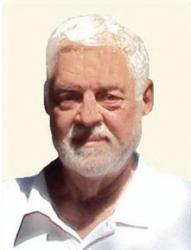Recently, the parish Republicans held a rally at the Civic Center’s lakefront pavilion. A dozen Republican and conservative organizations had booths there, and 14 candidates for office, as well as Attorney General Jeff Landry and Lt. Governor Billy Nungesser, addressed the crowd. The featured speaker for the event was Mark “Oz” Geist.
Mark Geist is one of the six security contractors depicted in the film Thirteen Hours who risked their lives to rescue the staff of the U.S. consulate in Benghazi when it was attacked by heavily armed radical jihadists in 2012. His call sign was “Oz.” He and his comrades were security contractors hired to protect the CIA annex located a mile from the consulate.
Defying orders to “stand down,” they rushed to the consulate, where they were able to save five Americans. They then fought off an attack on the CIA annex, saving another 25 lives. But they were unable to save Ambassador Chris Stevens and information officer Sean Smith and two of the security contractors — Glen Doherty and Tyrone Woods — who were killed in the rescue effort.
At the rally, Geist mingled with the crowd, signing autographs and being photographed with people for nearly two hours before taking the stage to give a riveting account of events that night in Benghazi. He blamed Hillary Clinton for ignoring repeated requests for enhanced security at the consulate; for delaying the dispatch of military forces to rescue them; and then lying about the nature of the attack by blaming it on an anti-Islamic video.
The next morning, I went to L’Auberge with my friend Woody Daigle to have breakfast with Geist before he flew back to Colorado. Daigle is co-producer of No Greater Love, a documentary about what soldiers in Afghanistan experienced in combat, and the difficulties they encountered returning home. The film has garnered many awards at film festivals around the country. The footage was shot by Justin Roberts, a former Army Chaplin who now resides in Sulphur. Armed only with a camera, Roberts went into combat with the “No Slack” Infantry Regiment of the 101st Airborne Division when it was deployed to Kunar Province in eastern Afghanistan. Three years later he interviewed soldiers of No Slack about their experiences readjusting to civilian life. Roberts is especially concerned about PTSD and the elevated suicide rate among soldiers who served in Afghanistan.
Geist has a similar interest in security contractors, who often find themselves involved in combat situations. He explained that these contractors are elite men and women hired by our government to protect American interests. They routinely put their lives on the line across enemy lines in the interest of national security, and at times, they are injured … sometimes in a life-altering way.
When he returned home from Benghazi, he was mentally and physically wounded. His injuries prevented him from being able to return to work, making it difficult to provide for his family as he had to undergo several surgeries and years of rehabilitation. Yet there is limited short-term, and virtually no long-term, support system in place for security contractors.
During our breakfast conversation, I discovered I had a couple of things in common with Geist. One was that we both attended the Defense Language Institute on the beautiful Monterey peninsula. I spent a year there in the mid-‘60s learning Russian, and returned in the mid-‘70s to get my undergraduate degree in international economics from the Monterey Institute for International Studies. Mark spent a year there in the ‘80s learning Farsi, the language spoken in Iran.
Another thing we shared was that we both spent time in military hospitals, which we agreed were excellent, in contrast to the care our veterans receive from the bureaucratic Veterans Administration.
The conversation then turned to events that night in Benghazi. Geist had said earlier that he did not like being called a “hero” for what he did that night. I said I could understand his modesty regarding the battle that night, because once they went, they had no choice but to fight their way out or die. There was no surrendering to the radical Jihadists. I suggested it must have taken great courage to decide to go rescue the staff at the consulate.
He pondered this for a moment, then said: “No, we never thought about it … It was just a reaction. They were pleading for help; they were going to die if we didn’t go; there was no decision to make … That’s what we are trained to do.”
He then paused and added, “What takes courage is putting your life back together after you come home: dealing with the nightmares, the flashbacks of your buddies dying, the physical therapy and financial problems and trying to figure out how you are going to support your family. That takes courage.”
Geist and his wife Krystal started the Shadow Warriors Project to help support American contractors and their families in need. Their goal is to serve as a support system for security contractors and their families by helping to pay for medical bills, PTSD treatment and other family therapies.
This is not a minor problem. Private contractors do not count as “boots on the ground” in Defense Dept. calculations.
The number of private contractors working for the U.S. Defense Dept. in Iraq has grown eight-fold over the past year — a rate that far outpaces the growing number of American troops training and advising Iraqi soldiers battling Islamic State militants.
You can learn more about the Shadow Warrior Project by going to: shadowwarriorsproject.org.
If you have not yet seen the film 13 Hours: The Secret Soldiers of Benghazi, it is well worth downloading and viewing. Directed and co-produced by Michael Bay, it is a carefully researched depiction of what happened that night. The acting and photography are excellent. Hillary Clinton is never mentioned in the film. But it is hard to tell the story of Benghazi without the obvious political implications.















Comments are closed.